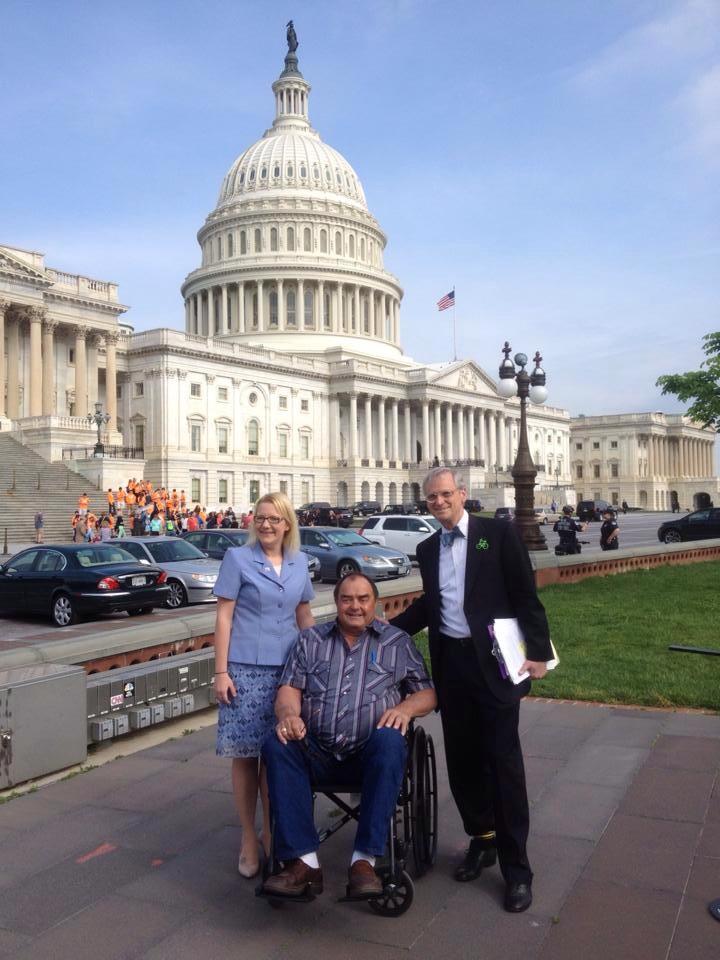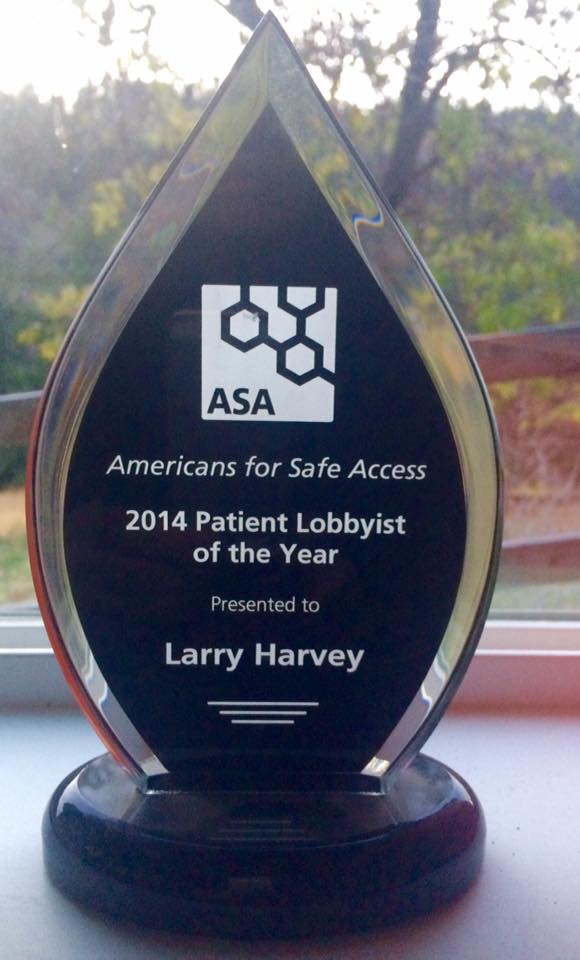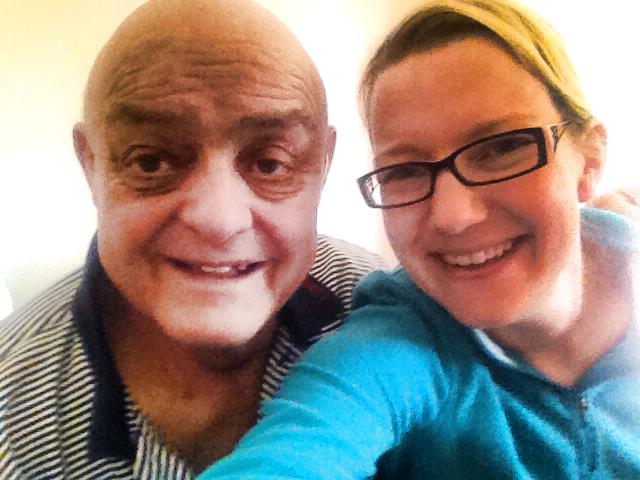
U. S. Admits it Didn’t Have Authority to Prosecute Legal Medical Marijuana Patients
By Allison Bigelow
After five years, will The Kettle Falls Five case finally be dropped?
A new legal brief has been filed in the Kettle Falls Five case by the U.S. Department of Justice (DOJ). In the briefing filed in October, the U.S. Attorney’s Office concedes that the prosecution should have ended in December of 2014, months before the case went to trial.
“I think your chances of winning the lottery are better than having the U.S. attorney admit, after five years of viciously pursuing five people, that they were wrong,” said Kari Boiter, who has been a spokesperson for the Kettle Falls Five from the beginning.
The motion filed on October 16th, 2017 says, in part, “the United States was not authorized to spend money on the prosecution of the defendants after December of 2014 because the defendants strictly complied with the Washington State medical marijuana laws.”

Photo by Allison Bigelow. Rhonda Firestack-Harvey and Kari Boiter being interviewed after the DOJ concedes that the prosecution should have ended in December of 2014, months before the case went to trial
Rhonda Firestack-Harvey and Larry Harvey owned and lived at the remote property that was raided in August of 2012. Rhonda’s son Rolland Gregg, his wife Michelle Gregg, and a friend Jason Zucker, the other three members of the collective garden, lived in the Seattle area and weren’t there. Larry Harvey was out of town. The agents said marijuana had been seen growing on the property. Firestack-Harvey showed the medical authorization papers to the officers, who were mostly from local agencies but included one officer from the U.S. Drug Enforcement Agency.
All five had doctor’s letters recommending marijuana for treatment of various conditions, including gout, anorexia, rheumatoid arthritis, degenerative disc disease, and chronic pain from a broken back. They were not trying to hide anything, their plants were being cultivated outside, and to notify passing planes that this was a legal garden, there was a large green cross located next to the garden.
Patients in Washington state have been allowed to cultivate marijuana for medical purposes since November of 1998 for themselves, as well as forming collectives to share the expenses of growing together. The number of plants found at the Harvey residence is consistent with the amount allowed in Washington state in 2012, the time of the raid. The residence is in a remote area of eastern Washington where bears, rattlesnakes, cougars, coyotes, and other predators are often on the prowl.
The five spoke with Douglas Hiatt, a Seattle attorney who specializes in medical marijuana cases. To convince prosecutors to either drop the case or keep it out of Federal court, Hiatt spoke with Assistant U.S. Attorney Earl Hicks explaining about collective gardening and how this group of five patients were legally cultivating their own medicine. He also pointed out that the firearms found were needed for safety in a remote area. Hiatt argued that these five patients were not breaking any state laws and that the prosecution should not spend any money prosecuting these innocent people. Completely ignoring his advice, in February of 2013 charges were filed in Federal court.
While being allowed to cultivate your own medicine is legal in some states, the Federal Government doesn’t see it that way. It is federally illegal to cultivate or even consume marijuana in all states. Being federally prosecuted, The Kettle Falls Five would not be allowed to mention that they were using marijuana for medical purposes at their trial.
None of the defendants could afford hiring a lawyer, so each of them were represented by five different lawyers paid for by the government. Douglas Hiatt, an expert in medical marijuana law, remained as an advisor to the five lawyers, and to Kari Boiter, who became involved in February 2013 as the coordinator for the legal, media, and political strategy that set this case apart from any other seen before. Boiter didn’t contact the media with the story until she developed the legal strategy. First, she had all five of the lawyers and defendants sign a “joint defense agreement” getting all the lawyers to work together as a team. It is unusual for defendants to work together. Typically, each defendant has their own lawyer, whose job it is to get the best deal for their own client, sometimes encouraging the defendant to take a plea bargain in exchange for testimony against each other. Lawyers are not used to working together. In this joint defense agreement each was required to notify the others if they were going to go off on their own. Otherwise, they agreed to work together for the best outcome, whether that be a plea agreement or going to trial, they would do it together.
Hiatt brought the five lawyers up to speed on the state’s medical marijuana law, and how collective gardens are compliant with Washington’s law. Boiter focused on keeping them up to date on the national level, the changing federal policy, and various memos that would come out, like the Cole memo. Boiter was also the Washington state coordinator for Americans for Safe Access (ASA), a National non-profit. She and ASA’s media specialist Kris Hermes branded the name Kettle Falls Five when preparing the media strategy.
Over the period of a few months, Boiter took about 10 trips to Washington D.C. lobbying Congress, often bringing family members of incarcerated patients, and forging friendships with legislators that were promoting the Rohrabacher-Farr amendment by giving them examples of patients that have been prosecuted. Boiter also prepared a white paper that ASA distributed to legislators that focused on the actual cost of prosecuting patients in states that are complying with their state’s medical marijuana law.
In May 2014, Larry Harvey, confined to a wheelchair, joined Boiter in Washington D.C. lobbying legislators on Capitol Hill. Their trip culminated with a press conference where Larry was flanked by members of Congress from both political parties. In May 2014, Congress passed the Rohrabacher-Farr amendment.

From left: Kari Boiter, Larry Harvey, and Congressman Earl Blumenauer May 2014 Washington D.C.
In a June 4, 2014 interview on #illegally healed with Kevin Quinn, Kari Boiter explained that she and Larry Harvey had gone to Washington D.C. to explain to Congress, who was having a budget debate, that “as they were having this budget debate and deciding how exactly taxpayers dollars should be spent that they knew what was happening in Washington state, and could understand exactly how much money was being spent for the federal government to interfere with state legal medical marijuana programs.” Kari said that she told Congress “we shouldn’t be spending taxpayer dollars to prosecute people like Larry Harvey. Currently to date, over three million dollars has been spent to go after his family, and when all is said and done, and they’ve been put to trial, and convicted and face a mandatory minimum it could cost taxpayers anywhere above fifteen million dollars for this case alone.”
The Rohrabacher-Farr amendment was signed into law in December of 2014. The amendment is attached to the budget and needs to be approved whenever the budget gets considered. Here’s what it says: “none of the funds made available in this Act to the Department of Justice may be used, with respect to the States of Alabama, Alaska, Arizona, California, Colorado, Connecticut, Delaware, District of Columbia, Florida, Hawaii, Illinois, Iowa, Kentucky, Maine, Maryland, Massachusetts, Michigan, Minnesota, Mississippi, Missouri, Montana, Nevada, New Hampshire, New Jersey, New Mexico, Oregon, Rhode Island, South Carolina, Tennessee, Utah, Vermont, Washington, and Wisconsin, to prevent such States from implementing their own State laws that authorize the use, distribution, possession, or cultivation of medical marijuana.”
This budget amendment has been approved every year since its start. For this achievement, Larry Harvey was given the coveted 2014 Patient Lobbyist of the Year Award from ASA.

In February 2015, Prosecutors dropped the charges against Larry Harvey citing his terminal cancer. Defendant Jason Zucker, the family friend, pleaded guilty just prior to trial and was sentenced to 16 months of prison time, a reduction from a potential 15 years if convicted on all charges.
In March 2015, the trial for Rhonda Firestack-Harvey, her son Rolland Gregg, and his wife Michelle Gregg was held. Being in Federal court, they were denied the opportunity to defend themselves by mentioning the marijuana they grew was for medical purposes. Several times during the trial, comments were made of the defendants being patients by the prosecution and a witness, making it hard for the jury to go as hard on them as the prosecution had desired. Furthermore, Larry Harvey sat stoic in his wheelchair, and it was obvious to all that he was very ill.
All three were acquitted on almost all federal charges, convicted only of the offense of cannabis cultivation. Firestack-Harvey and the Greggs appealed their convictions, arguing partly that the budget restriction in the Rohrabacher-Farr amendment prohibits the DOJ from spending money to prosecute medical marijuana cases if the person is following state law.

Photo by Kari Boiter. Larry Harvey learning that his family has been aquitted of 7 out of 8 of the charges against them
Larry Harvey died in August 2015. He and the other defendants have not been allowed to use their marijuana medications since the raid. In 2015, Reps. Dana Rohrabacher (R-Calif.) and Sam Farr (D-Calif.), the congressmen behind the federal provision protecting state-legal medical marijuana operations, wrote a letter seeking an investigation into the DOJ’s continued crackdown on medical marijuana patients and providers. In a letter addressed to DOJ Inspector General Michael Horowitz, the lawmakers cited the continued federal pursuit of the Harvey family as a “direct violation” of what is now federal law.
In October of 2015, almost two months after Larry’s death, Rhonda Firestack-Harvey and Michelle Gregg were sentenced to a year and a day each, and Rolland Gregg was sentenced to 33 months in prison. They have been allowed to remain free on bond pending their appeal.
In 2016, the 9th Circuit ruled the budget restriction prohibits the DOJ from spending money to prosecute medical marijuana cases if the person is following state law, even if the arrest was made before the budget passed in 2014. Then a 2017 ruling by the appeals court said that spending federal money on an appeal of a medical marijuana conviction in a state where the drug is legal is prohibited. Because of those two new rulings, Assistant U.S. Attorney Earl Hicks told the 9th Circuit Court the Kettle Falls case should go back to U.S. District Judge Thomas Rice for further proceedings because the federal government had no authorization to continue to prosecute from December of 2014 on.
After hearing that the DOJ admits that it had no authorization to have prosecuted them for the last three years, Rhonda Firestack-Harvey says “the news is good. But Larry isn’t here. And you know, this really killed him, hanging over him. Even though he had cancer, I think he went faster.”
Despite the admissions by the DOJ, the brief did not recommend charges against the three defendants be dropped. Instead, it urged that this case should be “remanded to the district court for further proceedings and that this appeal should be stayed pending the outcome of the remand to the district court or until budget amendment 542’s prohibition is no longer in effect.”
Lawyers for the family are expected to seek the case’s dismissal. “Let’s not forget that Larry Harvey gave his life fighting for his family’s freedom and spent his final months on Earth working to pass the federal law that is cited in the prosecutors’ new motion,” Kari Boiter said. “The federal government can’t give Larry back, but they can start to right this wrong by fully exonerating the surviving defendants, once and for all.”
“It’s just hard to move on not knowing if we are going to go to jail. That all hanging over you. I mean, seriously, it doesn’t leave your mind,” Firestack-Harvey said. Both Firestack-Harvey and Boiter said the family deserves an apology. “What is the price that you can put on a man’s life? What is the price you can put on four people losing their freedom? They were treated like criminals this entire time. And the truth is, they were innocent,” Kari said.

Photo by Kari Boiter. Rhonda Firestack-Harvey and Kari Boiter at Thomas S. Foley, United States Courthouse October 20, 2017